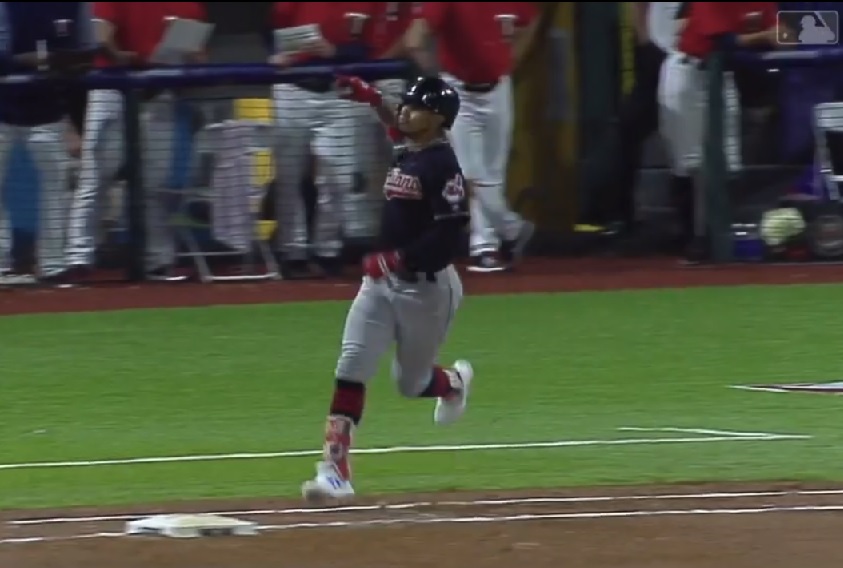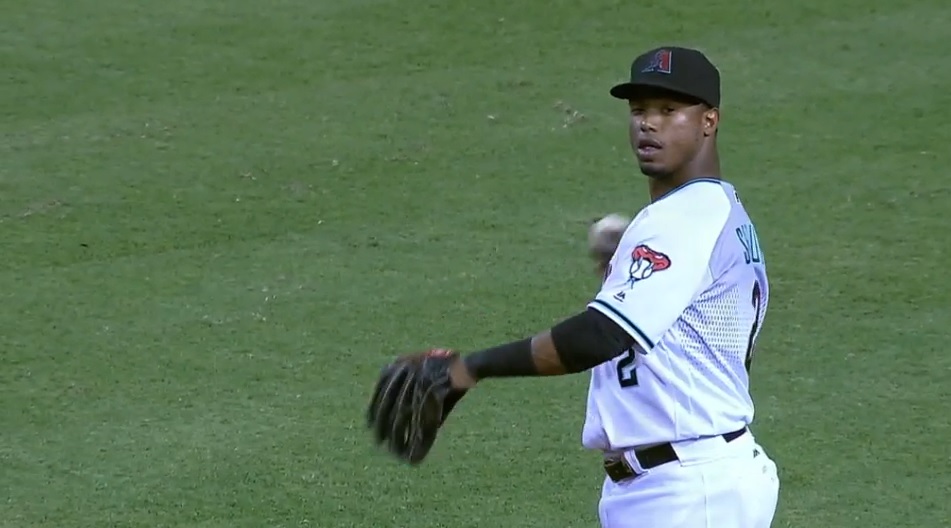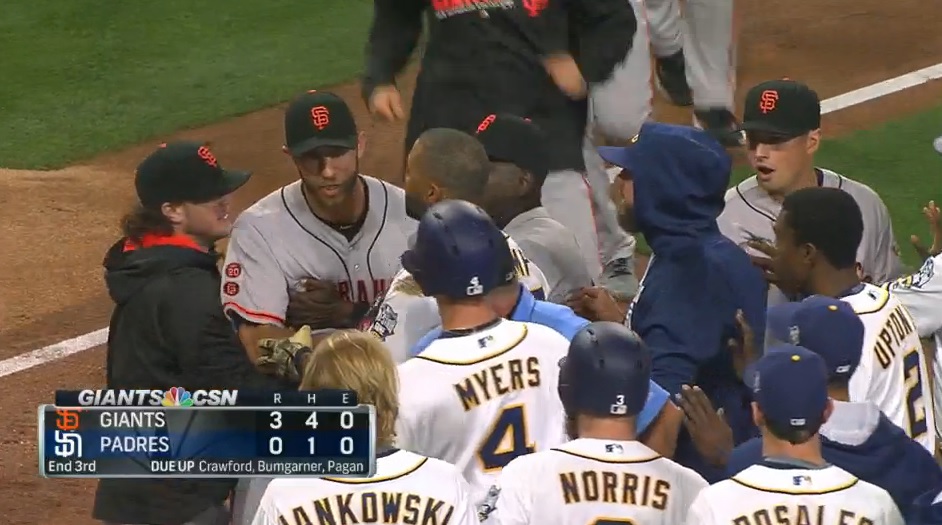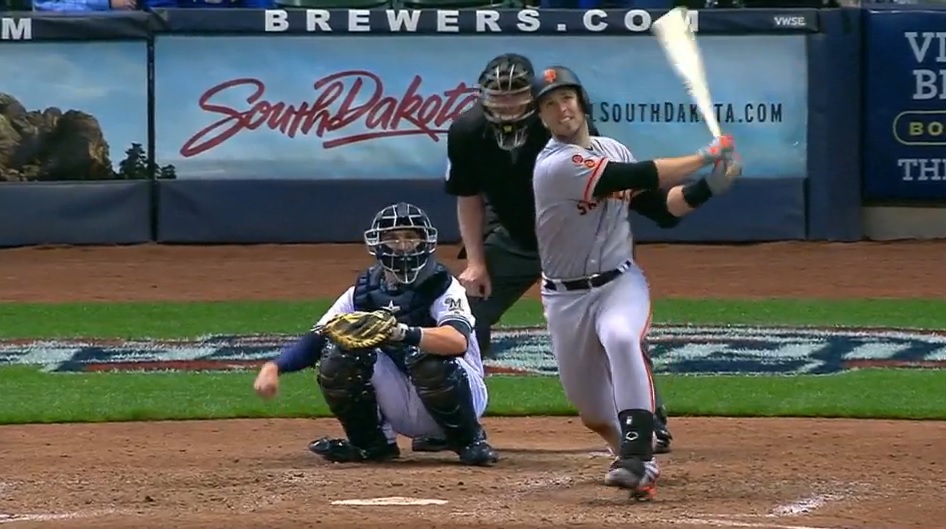A month ago today I posted about Gregg Olson’s Twitter feed (@GreggOlson30), which the former closer was using to compile a list of baseball’s unwritten rules. He’d tweeted 14 of them at that point, and since then has tweeted 15 more. Here are the rest in all their glory, with the occasional addendum from me. (Gregg, if you haven’t yet read The Baseball Codes, it’s right up your alley. DM me and I’ll get you a copy.)
This goes without saying. It didn’t necessarily stop Rob Dibble, of course, or the occasional lunatic who brought a gun into the clubhouse, but those guys weren’t the norm.
With an exception made for Elvis Andrus and Adrian Beltre, this one is solid … though it can also be utilized for nefarious purposes. In a story told by Bill Lee, for example, Orioles shortstop Luis Aparicio took advantage of the sometimes-extreme religious leanings of St. Louis shortstop Julio Gotay by making crosses out of tongue depressors atop second base before an an exhibition game in the early-1960s. Gotay didn’t notice them until the first inning, when, with a runner on first, he fielded a grounder and took the ball to second base himself. Upon spying Aparicio’s handiwork, he let out a shriek and immediately backed away from the play. Both runners ended up safe on what had appeared to be a certain double-play, then scored on an ensuing triple. (“I asked Aparicio if he ever tried that trick again,” Lee wrote in The Wrong Stuff. “He told me no, explaining that he he wanted to save it in case he played against Gotay in a World Series or All-Star game.”)
This one is true all the way down to travel ball. Warmups for tournament games can only take place on the sideline or in the outfield. If there’s a reason for this beyond keeping the dirt pristine till first pitch, I have no idea what it is.
Peeking = bad. Alex Rodriguez liked to do this. Do not imitate Alex Rodriguez.
Unwritten rule #20(a): Do whatever Verlander says.
For generations, veterans used this one to put any big-mouthed rookie in his place. “[Veterans] wouldn’t even speak to you,” said Lefty Grove about his own rookie experience, in Baseball When The Grass Was Real. “They figured you were coming there to take away somebody’s job. I was there about two weeks before they let on they knew I was around—and I’d already won three or four games by then. Oh, boy.” Part of it had to do with earning one’s place in the clubhouse, but part of it was strictly pragmatic: Guys with little life experience are better off absorbing what they can than trying to impart semi-formed opinions. Now that rookies earn more money than some veterans via outlandish signing bonuses , however, and can possess significant star power before ever playing an inning of big league ball, Rule No. 21 is not nearly as germane as it once was.
This is true for meals, for wardrobes, for nights on the town. When catcher Bill Schroeder was a rookie with the Brewers in 1983, he ended up in the hotel bar after a game in Kansas City. The veterans in the room wouldn’t let him pay for a drink all night, so in a token of appreciation, he approached a waitress toward the end of the evening and ordered a reciprocal round for them. Mike Caldwell stood up, asked who had purchased the drinks, and jumped into action. “Caldwell came over to me, and brought all six beers with him,” recalled Schroeder. “He said, ‘You’re not leaving here until you drink all these beers, and don’t you ever pull your wallet out again this year. You are not to buy another beer this season. You’re a rookie, and that’s our job.’ ” Yes, Schroeder finished the beers. No, he didn’t buy another round until 1984.
There’s an entire chapter in The Baseball Codes about mound conference etiquette, which pays specific attention to a moment in which Giants pitcher Jim Barr opted to refute this rule with the one guy least likely to tolerate insubordination: Frank Robinson. (It almost ended up in fisticuffs in the dugout.) In another incident, from 1974 (as detailed in Dynastic, Bombastic, Fantastic), A’s pitcher Vida Blue showed displeasure with manager Alvin Dark by leaving the mound before the skipper even arrived, then flipping the ball into the air as he blew past him. (Blue paid the resulting $250 fine in nickels.)
Hitters going to the batter’s box on the opposite side of the field from their dugout must similarly circle behind the catcher and umpire. The path between pitcher and catcher is sacrosanct territory.
Especially true with a 3-0 count during a blowout.
It goes without saying that the most effective method of communication between batter an umpire (or between catcher and umpire) occurs while the player in question is facing away from the ump, toward the field, in a low-key conversation that goes largely undetected save for those in the immediate vicinity. Umpires who feel shown up in front of a stadium full of people are less likely to be flexible in their opinions about a given subject.
Superstitions, man.
This is along the same lines as a pitcher waiting for his manager on the mound. You got your team into this mess; it’s the least you can do to stick around until one of your teammates gets you out of it.
This is the biggest and most important of all unwritten rules, the one from which most of an esoteric and sometimes baffling code book is derived. Dusty Baker said it best, in my favorite quote from The Baseball Codes: “I honestly believe that what you learn in this game is not yours to possess, but yours to pass on. I believe that, whether it’s equipment, knowledge, or philosophy, that’s the only way the game shall carry on. I believe that you have to talk, communicate, and pass on what was given to you. You can’t harbor it. You can’t run off to the woods and keep it for yourself, because it isn’t yours to keep. And what you teach other guys is the torch you pass. I don’t make this up—it was passed to me.”
Here’s to you, Gregg. Nice work.

 Position yourself for a moment as an old-school curmudgeon when it comes to baseball’s unwritten rules, a defender of decorum, issuing proclamations about how it was better back before the current generation took over and started flipping bats all over the field and celebrating June victories like they’d just won the World Series.
Position yourself for a moment as an old-school curmudgeon when it comes to baseball’s unwritten rules, a defender of decorum, issuing proclamations about how it was better back before the current generation took over and started flipping bats all over the field and celebrating June victories like they’d just won the World Series. In a note only tangentially related to baseball’s Code, it seems fitting to recall Jose Fernandez, as so many have done over the last day or so, as a man whose passions ran deep. His joyful embrace of the game accentuated the drama of
In a note only tangentially related to baseball’s Code, it seems fitting to recall Jose Fernandez, as so many have done over the last day or so, as a man whose passions ran deep. His joyful embrace of the game accentuated the drama of 
 So Goose Gossage, mustached ball of old-man rage, will be
So Goose Gossage, mustached ball of old-man rage, will be 

